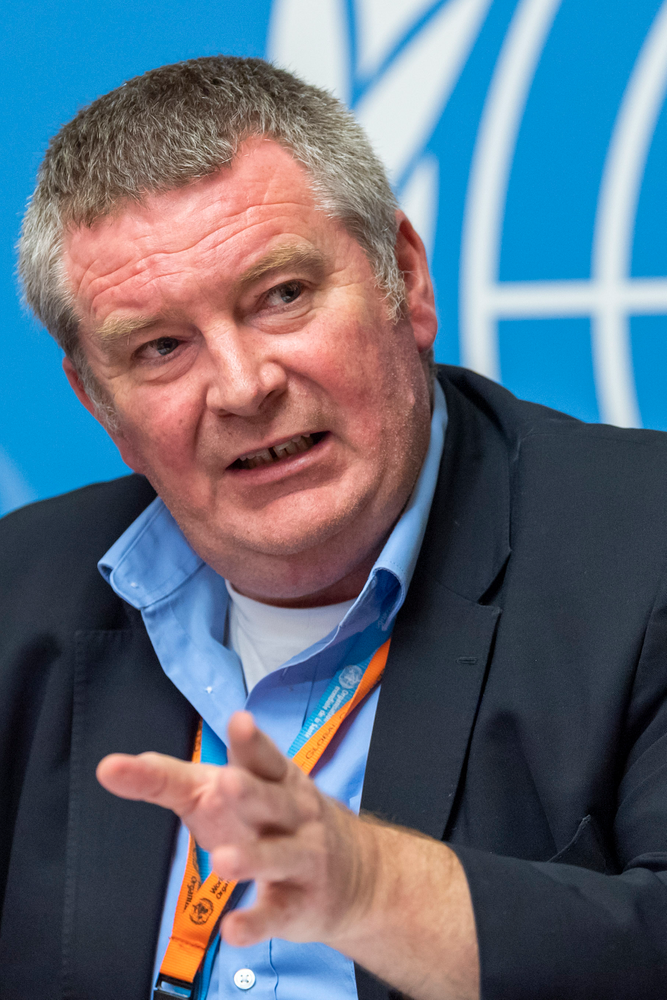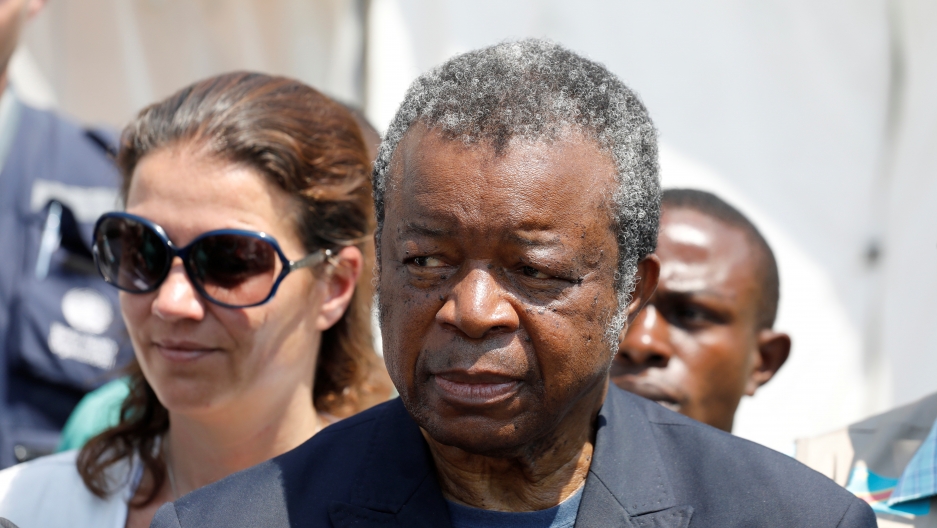By Peter Olorunnisomo – The news of a high probability of a cure for Ebola after over forty (40) years is certainly expected to chime ecstatic bells in those countries that have had victims claimed from them. For the Democratic Republic of Congo, those alive today – fathers and mothers, uncles and aunts, and even children would readily weep for the news of this hope.

It can be argued, to be sceptic that the cure really makes no difference in a country where there are more living to die by the machete and bullets and hoping it is over quickly than getting cured.
The value of dying a brutal death leaves even those alive praying for death. The horrendous forms of rapes, children forever banished from childhood by gory memories death, surrogate orphanages becoming as commonplace as the greens of the bushes to hide, the prophecies of bodies and blood to the tunes of the Kalashnikov and sub-machine guns, and the hallowed silence of the night assuring that one will survive that night.

Kudos to the international agencies, the pharmaceutical research centres, and the millions of dollars from donor countries and corporate organisations who have invested in the cure for a disease that was first known as deadly in 1976 near the Ebola river in DRC.
It will be a great relief to their investments that lives can at last be saved because Scientists are a step closer to being able to cure the deadly Ebola haemorrhagic fever after two experimental drugs showed survival rates of as much as 90% in the clinical trial in Congo.
Two experimental drugs – an antibody cocktail called REGN-EB3 developed by Regeneron and a monoclonal antibody called mAb114 – will now be offered to all patients infected with the viral disease in an ongoing outbreak in the Democratic Republic of Congo (DRC).
The drugs showed “clearly better” results, according to U.S. National Institute of Allergy and Infectious Diseases (NIAID), in a trial of four potential treatments being conducted during the second-largest Ebola outbreak in history, now entering its second year in DRC.
The drugs improved survival rates from the disease more than two other treatments being tested – ZMapp, made by Mapp Biopharmaceutical, and Remdesivir, made by Gilead Sciences – and those products will be now dropped, said Anthony Fauci, one of the researchers co-leading the trial.
The agency said 49% of the patients on ZMapp and 53% on Remdesivir died in the study. In comparison, 29% of the patients on REGN-EB3 and 34% on mAb114 died.
Jean-Jacques Muyembe, Director General of Congo’s Institut National de Recherche Biomédicale in DRC, who co-led the trial, said the results meant that “from now on, we will no longer say that Ebola is incurable.”
“These advances will help save thousands of lives,” he told reporters.
Anthony Fauci, NIAID’s director, also said the results were “very good news” for the fight against Ebola.
The agency said that of the patients who were brought into treatment centres with low levels of virus detected in their blood, 94% who got REGN-EB3 and 89% on mAb114 survived.
In comparison, two-thirds of the patients who got Remdesivir and nearly three-quarters on ZMapp survived.
Ebola has been spreading in eastern Congo since August 2018 in an outbreak that has now killed at least 1,800 people. Efforts to control it have been hampered by militia violence and some local resistance to outside help.
A vast Ebola outbreak in West Africa from 2013 to 2016 became the world’s largest ever when it spread through Guinea, Liberia and Sierra Leone and killed more than 11,300 people.
The Congo treatment trial which began, in November, last year, is being carried out by an international research group coordinated by the World Health Organization (WHO).
Mike Ryan, head of the WHO’s emergencies programme, said the trial’s positive findings were encouraging but would not be enough on their own to bring the epidemic to an end.
“The news today is fantastic. It gives us a new tool in our toolbox against Ebola, but it will not in itself stop Ebola,” he told reporters.
Jeremy Farrar, director of the Wellcome Trust global health charity, also hailed the success of the trial’s findings, saying they would “undoubtedly save lives”.
“The more we learn about these two treatments … the closer we can get to turning Ebola from a terrifying disease to one that is preventable and treatable,” he said in a statement.
“We won’t ever get rid of Ebola but we should be able to stop these outbreaks from turning into major national and regional epidemics.”
Some 681 patients at four separate treatment centres in Congo have already been enrolled in the Congo treatment clinical trial, Fauci said. The study aims to enrol a total of 725.
The decision to drop two of the trial drugs was based on data from almost 500 patients, he said, which showed that those who got REGN-EB3 or mAb114 “had a greater chance of survival compared to those participants in the other two arms”.
The two promising drugs are made from Ebola antibodies – a protein produced by the immune system to defend against infection. Regeneron’s product is a cocktail of three Ebola antibodies, while mAb114 is a single antibody developed by scientists at NIAID.
With so much for the medical scientists, among the central issues which readily jumps to mind is better choice of death between ebola and the militant style in a nascent government that is yet to be free from the exchanges that has conferred untold wealth to the rest of the industrialised world and death of nationhood to the country that blesses them with its ‘blood’.
At least, the tens of thousands known to have died, with over 11,000 between 2014 -2016 alone, and more than 500 medical doctors, nurses and midwives died from Ebola in three countries at this period may rest in peace knowing their kinsmen and guild members won’t be joining them too soon.
Kindly follow us on twitter:@AfricanVoice2









